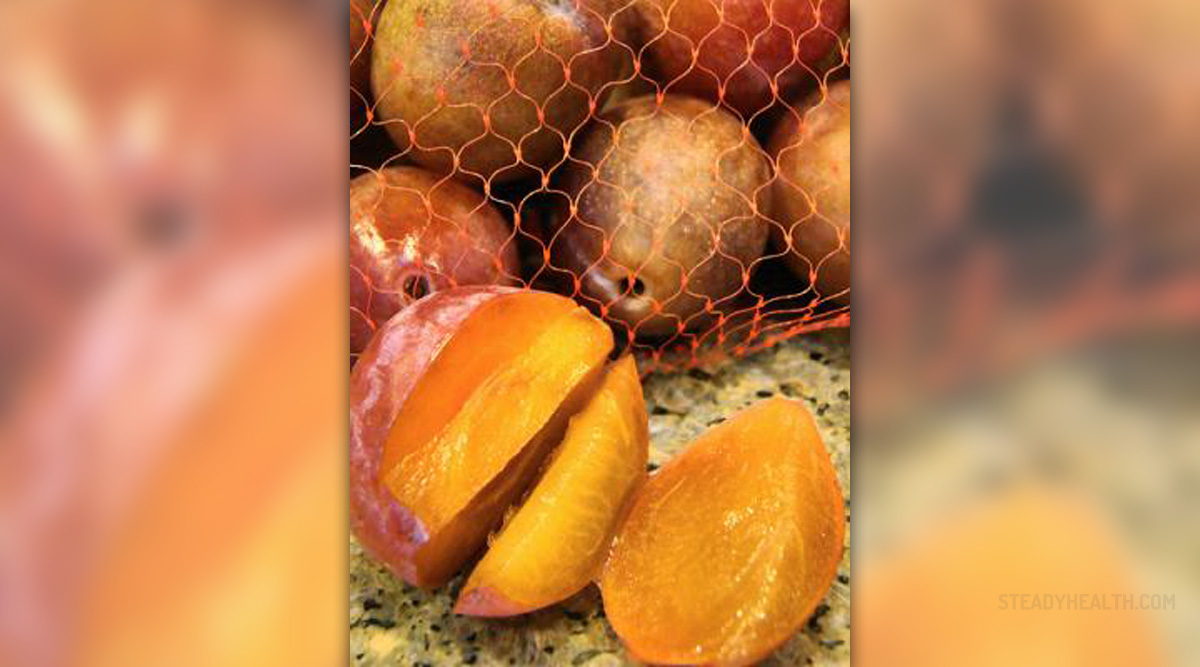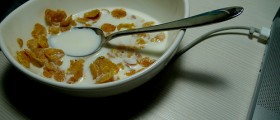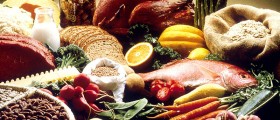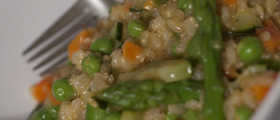
Dietary fiber, also known as roughage or bulk, includes the parts of plants that cannot be absorbed in the gastrointestinal tract. Other components of food like fats, protein and carbohydrates break down and are absorbed, but the dietary fiber leaves our body almost intact. It may seem like it is an unnecessary component of the food, but in fact fiber is important and beneficial for health.
There are two kinds of fiber-insoluble and soluble, which dissolves in water.
Insoluble fiber has an important role in preventing and treating the constipation. It increases stool bulk and helps it pass through the bowels. Natural sources of insoluble fiber are whole grain flour, wheat bran, nuts and many different vegetables.
Soluble fiber dissolves in water forming a mass much like a gel. This type of fiber helps in lowering the cholesterol and sugar levels in blood. It can be found in apples, oats, barley, beans, peas, carrots and citruses. To obtain more benefits from both soluble and insoluble fiber, it is important to include different sources in the diet.
Dietary fiber helps regulate bowel movements, preventing constipation and irregular stools. As a consequence, it prevents hemorrhoids. There are currently some studies that investigate the possibility that the fermentation of some fibers in the bowels may prevent colorectal cancer and other diseases of the colon.
Fiber controls cholesterol levels by lowering “bad” cholesterol levels. Fiber also has some effects on heart health, as it reduces high blood pressure and inflammation. Soluble fiber reduces the absorption of sugar, which is important for people who have diabetes.
Persons who wish to lose weight should consider adding more sources of fiber in their diet. Fiber requires more chewing making it difficult to overeat. A meal that consists of plenty of fiber looks bigger and more filling and the sensation of fullness lasts longer. Also, foods rich in fiber usually contain fewer calories.
Foods that represent good sources of fiber are fruits and vegetables, whole grains, nuts and legumes.
Processed or refined foods like white bread and pastry, pasta, canned fruits and vegetables have less fiber. The outer coat of grains, called bran contains most of the fiber and when it is removed during refining; most of the precious fiber is lost.
Supplements that contain fiber are available on the market but it is always better if the fiber comes directly from its natural source. However, some people, especially those who suffer from chronic constipation, diarrhea or irritable bowel syndrome, need to take supplements as well.
Adding too much fiber to the diet too quickly may result in gas, bloating and stomach cramps, so it needs to be introduced gradually, and with plenty of water, because the fiber works best in combination with water.

















Your thoughts on this
Loading...